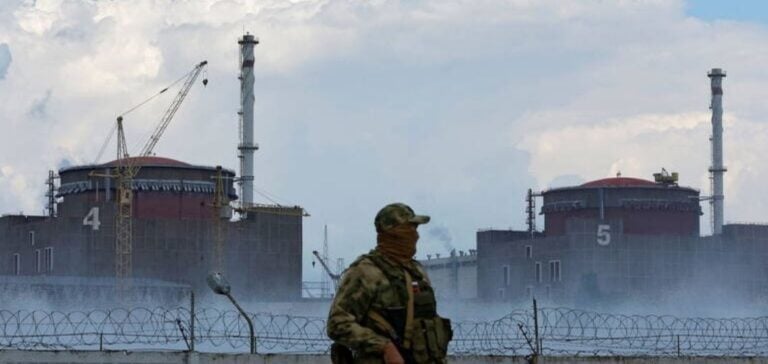Ukrainian Energy Minister German Galushchenko announced that an attack had disrupted one of the two power lines supplying the Zaporizhia nuclear power plant, occupied by Russia since March 2022. This puts the plant in a precarious position, with only one line left for the entire Ukrainian power grid. The operator Energoatom has confirmed the seriousness of the outage. As a result, the plant is extremely vulnerable.
Increased risk of nuclear accident
Energoatom expressed concern about the possibility of a total blackout at the plant. Without this line, the reactors would be cooled solely by emergency diesel generators. The power plant, Europe’s largest, has already experienced full and partial blackouts. A shutdown of the diesel generators could lead to a nuclear accident.
Regional impact of attacks
The attacks were not limited to the nuclear power plant. Twelve Russian missiles also hit the Zaporijjia region, damaging homes and injuring an unknown number of people. Officials in other Ukrainian regions also reported damage to energy infrastructure. These attacks seem to systematically target Ukrainian infrastructure.
Damage and civilian casualties
The consequences of these attacks are considerable. In Marioupol, a missile hit a trolleybus, causing civilian casualties. The mayor of Khmelnytskyi, Oleksandr Symtchychine, described a morning marked by destruction and civilian casualties. Other regions reported power outages and infrastructure damage as a result of the attacks.
The Minister of Energy interpreted these attacks as an attempt to cause a major breakdown in the Ukrainian energy system. These actions are part of a wider campaign to weaken Ukraine by targeting its key infrastructure. Attacks on civilian and energy targets increase pressure on Ukrainian emergency services. A strategy designed to destabilize the country on several fronts.






















